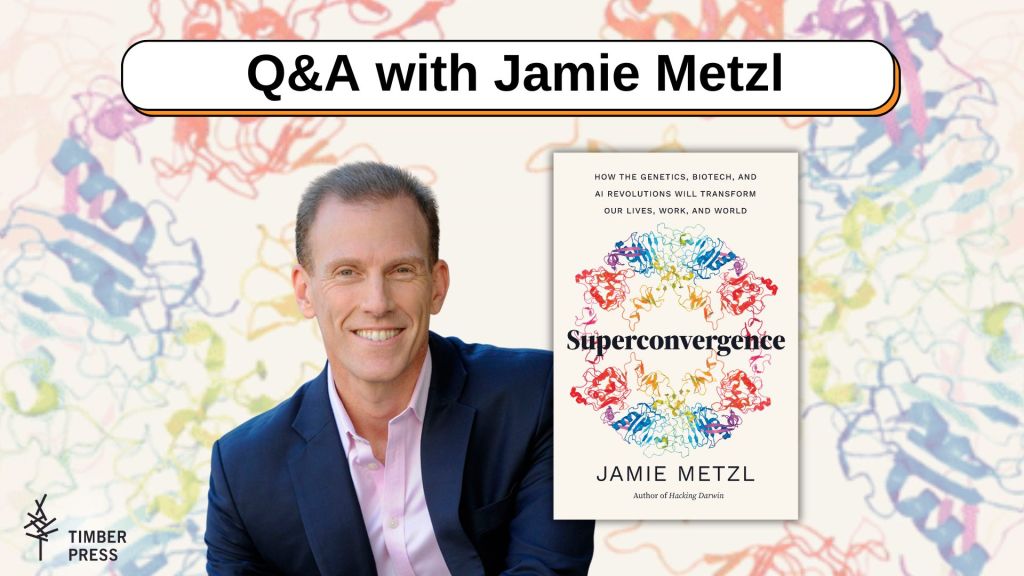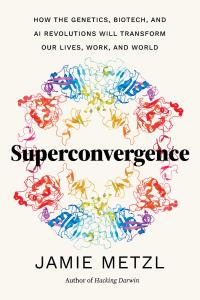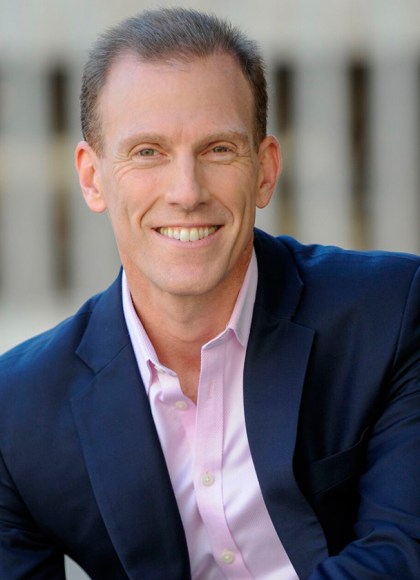Q&A with Superconvergence author Jamie Metzl

You speak to the critical importance of collective and individual decision-making; how can readers make conscious decisions to help protect our future while making the most of new technological advancements?
Most people feel that technological change is happening so rapidly and at such a scale that they can only be passive bystanders. I want to inspire people to feel differently.
Just like every vote matters in a functioning democracy, even only in aggregate, every person has a critical role in determining how some of the most consequential technologies in human history should and should not be used.
To do this, people need to focus both on their individual actions and personal decisions, as well as the roles they play in broader structures and institutions. Our species has done some incredible things over time.
We’ve transformed the world around us, built incredible cultural and artistic traditions and civilizations, gone to space, and developed legal systems enabling most of us to live in relative peace. To manage our new superpowers wisely, we’ll need to show the best of what we’re capable of and build new frameworks for optimizing benefits to all and minimizing potential harms.
It’s a huge task but we’ve got to do it and we’ve got to start now. That’s why I’ve written Superconvergence.
How is the concept of humanity evolving with the advancement of technology? How can we ensure that emerging technologies benefit humanity rather than harm it?
Humans have co-evolved with our technologies for hundreds of thousands of years, if not longer. Taming fire for cooking helped us allocate more energy to our brains. Farming allowed us to build our civilizations and even led to changes in our genetic make-up.
No technology comes with a built-in value system. Every technology can be used for good or for ill. It’s up to us to take steps to increase the odds that our technologies will be used for what we consider good and to decrease the chances they will be abused.
There is no easy answer for how best to do this, but it requires coming together to determine what are our common values and goals, then fostering governance systems on every level moving in this direction.
Why do you think so many are frightened by the concept and potential applications of Artificial Intelligence? Is AI different in some fundamental way from previous emerging technologies?
AI is a relatively new technology with potentially massive implications across the board. Like writing and electricity, it is a general-purpose technology that will—directly and indirectly—change most aspects of our lives and world.
No one knows exactly how AI will develop or how it will interact with us humans on its own and in conjunction with other technologies. Some people are imagining some sort of AI apocalypse, where future AIs treat us kind of like our ancestors treated the Neanderthals.
That is one possibility, but I can imagine many more positive potential futures. What is both scary and exciting about AI is that it will eventually likely have the ability to learn and grow on its own.
We humans have given birth to AI, but like any child, we will not be able to fully control it as it grows up. The good news is that most kids grow up to be generally good people.
The moral application of new technologies often (but not always) comes down to good and bad actors, which as you state in your book, are not always well-defined. What kinds of things should the average person look for when evaluating actors in the emerging worlds of biotech and Artificial Intelligence?
In some ways, the easier question is the differentiation between good and bad actors. There are many amazing scientists, technologists, and others across the globe working to use these superpowers to help address major issues like climate change, food security, pandemics, etc., who need our support. There are also bad actors exploring how the new tools of the AI, genetics, and biotechnology revolutions can be used to wreak havoc and defeat adversaries.
An even more challenging question is what to do about people working with good intentions who inadvertently end up causing harm. The very boring word describing how we build systems that optimize the types of outcomes we want and minimize what we don’t is “governance.”
Governance isn’t just about what governments do but about what we all do and what all our communities and institutions do at every level. A first step toward better governance must be a much deeper process of collectively exploring what our goals and aspirations should be. This is incredibly hard work, but I outline a framework for setting out in the right direction in the book.
Humans have been breeding (and crossbreeding) plants and animals for thousands of years. Does superconvergence simply accelerate this process or is there other added value in using new technologies to perform these age-old chores?
Agriculture is a highly aggressive form of biotechnology that our ancestors have been carrying out for ten thousand years. If you walk into your local supermarket, pretty much all the fruits and vegetables you see, even in the organic section, are the product of this type of biotechnology.
About fifty years ago, we entered the age of genetically modified crops, where genes from one type of organism were inserted into another to develop new varieties of soy, corn, and much else.
We are now entering the age of genome edited crops where the genetics of an individual variety of crop can be manipulated to highlight or downplay various traits. As our planet warms and human populations grow, we’re going to need these kinds of tools to feed ourselves without decimating the planet.
Of course, we’ll need to do this wisely. This scares many people, but we should be more afraid of destroying our wild spaces to extend more traditional farming to meet our needs. Because agriculture has always been a form of aggressive biotechnology, the essential question for us is how can we do this aggressive biotechnology in the most productive, healthy, and sustainable ways.
Changes in plant technology have given us tomatoes that stay fresh after long truck rides, but don’t taste good, and flowers that last longer than before, but don’t have an aroma. Can superconvergence account for the aesthetic needs of humans, as well as efficiencies that are needed in our marketplaces?
The tools of the genetics and biotechnology revolutions will help us develop plants, and even animals, that better meet our needs. We’ll get varieties of crops that can better survive in climate-stressed environments and produce fruits and vegetables that grow faster, use less water and fertilizer, resist pests, absorb nutrients more efficiently, photosynthesize more aggressively, taste better, and last longer.
We’ll be able to do this at scale by harnessing the inherent productivity of nature. This will extend far beyond plants and allow us to continue engineering domesticated animals as we’ve done for thousands of years, just in a more focused manner. The same principles will also apply to industrial materials, energy, data storage, and much else.
People may cringe at the idea of meat grown from stem cells in industrial bioreactors, which is a real possibility for our future, but they’ll need to weigh these feelings against concerns for the climate, environmental, health, and ethical issues associated with our current forms of industrial animal agriculture.
All these possibilities for doing things differently will only work if the products generated with the assistance of biotechnology are better, cheaper, safer, and more desirable than their alternatives. We still have a way to go to make that happen, but lots of progress is being made.
What are three key points you hope readers will take away Superconvergence?
The book makes three major arguments. First, all technologies are converging in ways that continually accelerate progress. Most technologies are embedded in every other, so what we’re really facing is across-the-board technological progress in all areas.
Second, our newfound abilities to engineer intelligence and re-engineer biology will empower us to transform the living world around us in ways that today seem like science fiction. This will have profound and massive implications for healthcare, agriculture, industry, computing, energy, and nearly every other area.
Third, while we can imagine both utopian and dystopian applications of our new superpowers, it’s up to us to do the hard and essential work now to optimize the phenomenal potential benefits and minimize the horrific potential harms.
New technologies have the potential to improve our health, feed billions of people, supercharge our economies, store essential information for millions of years, and save our planet. But if we’re not careful, they can also do immeasurable harm. Luckily, in Jamie Metzl, we have a leading expert who integrates science, technology, history, politics, and international affairs to envision a future that most specialists, almost by definition, cannot see.
In this bold and inspiring exploration of transformative human knowledge, Metzl gives us the definitive account of the technological precipice on which we stand and the map to where we go from here.

